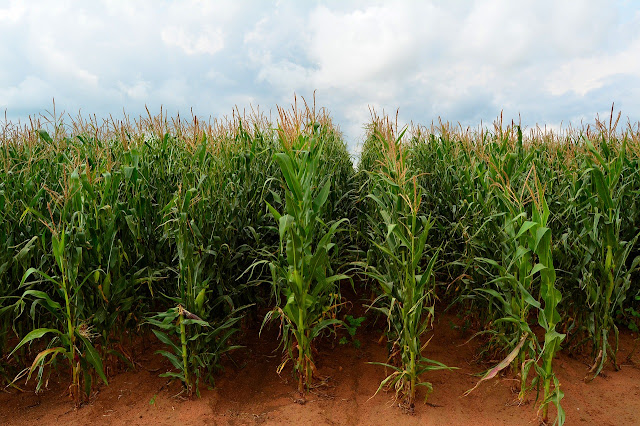In recent years, compost has gained recognition as a powerful tool in agriculture due to its multifaceted advantages for both farmers and the environment. This blog will delve deep into the benefits of using compost in agriculture, shedding light...
Introduction
Compost, often referred to as "black gold" by seasoned farmers, is the result of organic matter decomposition. It is a nutrient-rich, dark, earthy substance that serves as a natural fertilizer and soil conditioner. Composting involves recycling organic materials like kitchen scraps, crop residues, and manure into a valuable resource that enriches soil and fosters robust crop growth.
The Key Benefits of Compost in Agriculture
Enhanced Soil Health
Compost acts as a soil conditioner, improving its structure, aeration, and water retention capacity. It replenishes organic matter, essential for microbial activity, and encourages beneficial soil organisms like earthworms. This, in turn, leads to healthier, more fertile soils.
Nutrient-Rich Fertilization
One of the primary advantages of compost is its role as a natural fertilizer. It provides essential nutrients to crops, including nitrogen, phosphorus, and potassium, while also supplying micronutrients. Unlike synthetic fertilizers, compost releases these nutrients slowly, reducing the risk of nutrient runoff and groundwater contamination.
Improved Water Retention
Compost helps soil retain moisture, reducing the need for excessive irrigation. This is especially valuable in regions with erratic rainfall patterns or drought-prone areas, contributing to water conservation and sustainable farming practices.
Reduced Erosion
Compost-enriched soil is less susceptible to erosion, preventing valuable topsoil from being washed away by rain or wind. This conserves soil resources and maintains fertile fields for future generations.
Disease Suppression
Compost contains beneficial microorganisms that can suppress soil-borne diseases, reducing the need for chemical pesticides. This promotes healthier crops and minimizes the environmental impact of conventional agriculture.
Carbon Sequestration
Using compost in agriculture contributes to carbon sequestration, a process that captures and stores atmospheric carbon dioxide in the soil. This helps combat climate change by reducing greenhouse gas emissions.
The Role of Compost in Sustainable Agriculture
Sustainable agriculture practices prioritize environmental stewardship, economic viability, and social responsibility. Compost aligns perfectly with these goals by promoting:
Reduced reliance on synthetic chemicals and fertilizers.
Preservation of soil fertility for future generations.
Lower production costs for farmers, particularly in the long run.
Enhanced resilience against extreme weather events.
Increased crop yields and overall farm productivity.
Conclusion
In conclusion, the utilization of compost in agriculture is a win-win scenario. It fosters soil health, boosts crop yields, reduces the environmental impact of farming, and aligns with sustainable agricultural practices. As we strive for a more sustainable and eco-friendly future, composting emerges as a crucial tool in the hands of farmers and environmentalists alike.
By incorporating compost into agricultural practices, we can cultivate healthier soils, support thriving crops, and contribute to a more sustainable planet.
#Compost #Agriculture #SoilHealth #Sustainability #CropYield #OrganicFarming #CarbonSequestration #SustainableAgriculture













